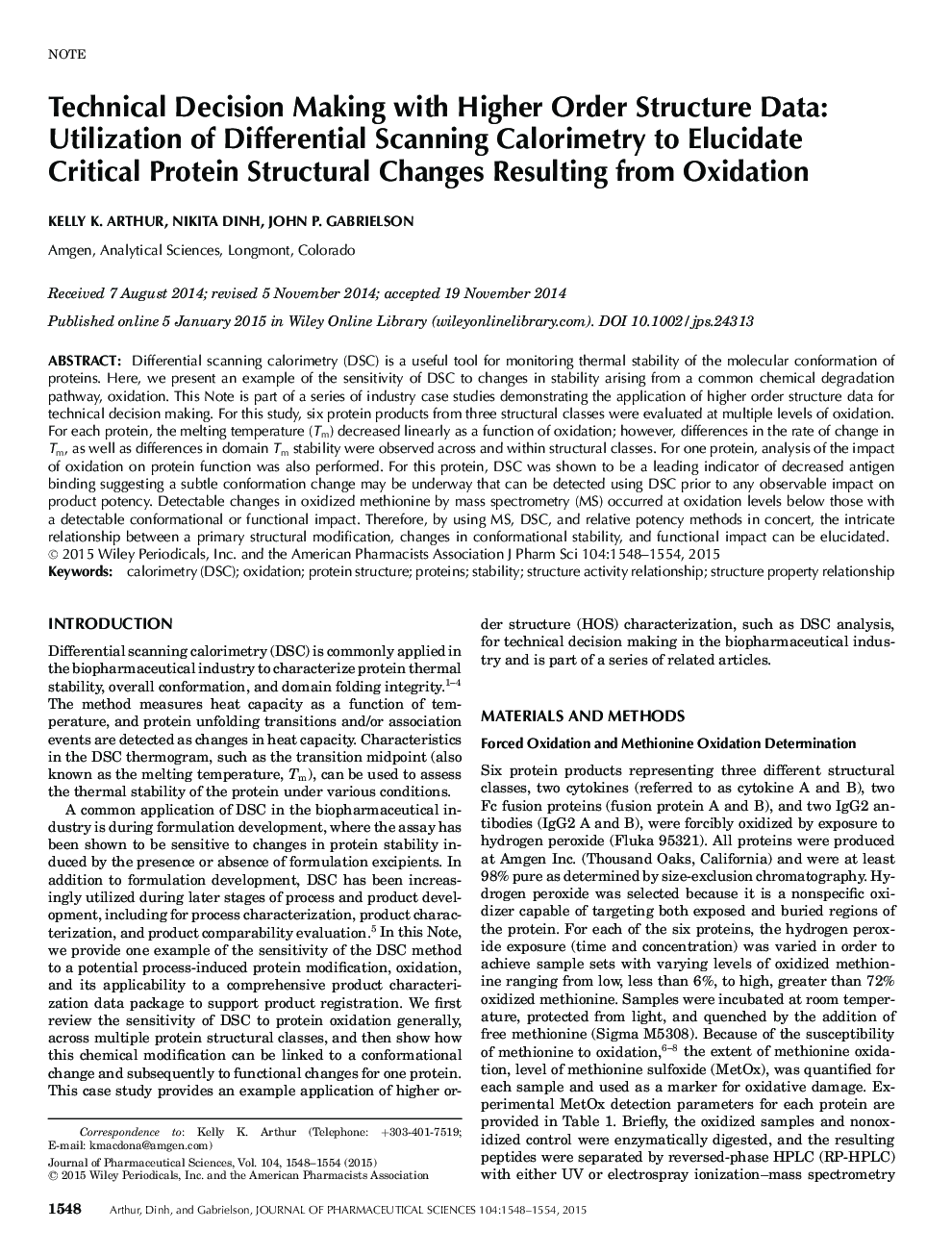| Article ID | Journal | Published Year | Pages | File Type |
|---|---|---|---|---|
| 10162147 | Journal of Pharmaceutical Sciences | 2015 | 7 Pages |
Abstract
Differential scanning calorimetry (DSC) is a useful tool for monitoring thermal stability of the molecular conformation of proteins. Here, we present an example of the sensitivity of DSC to changes in stability arising from a common chemical degradation pathway, oxidation. This Note is part of a series of industry case studies demonstrating the application of higher order structure data for technical decision making. For this study, six protein products from three structural classes were evaluated at multiple levels of oxidation. For each protein, the melting temperature (Tm) decreased linearly as a function of oxidation; however, differences in the rate of change in Tm, as well as differences in domain Tm stability were observed across and within structural classes. For one protein, analysis of the impact of oxidation on protein function was also performed. For this protein, DSC was shown to be a leading indicator of decreased antigen binding suggesting a subtle conformation change may be underway that can be detected using DSC prior to any observable impact on product potency. Detectable changes in oxidized methionine by mass spectrometry (MS) occurred at oxidation levels below those with a detectable conformational or functional impact. Therefore, by using MS, DSC, and relative potency methods in concert, the intricate relationship between a primary structural modification, changes in conformational stability, and functional impact can be elucidated.
Keywords
Related Topics
Health Sciences
Pharmacology, Toxicology and Pharmaceutical Science
Drug Discovery
Authors
Kelly K. Arthur, Nikita Dinh, John P. Gabrielson,
